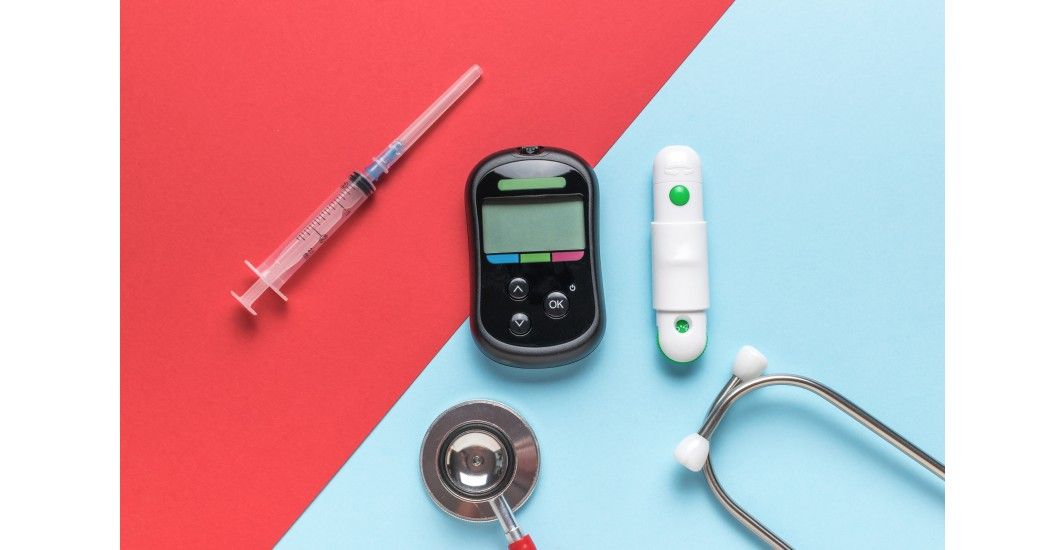Diabetes Management
Does Deficiency Of Any Hormone Cause Diabetes?
2 min read
By Apollo 24|7, Published on - 10 July 2024, Updated on - 11 July 2024
Share this article
0
0 like
.jpg?tr=q-80)
The word diabetes may bring to mind one essential hormone - insulin. But does a deficiency in insulin, or any other hormone for that matter, lead to diabetes? Let's delve deeper into this matter.
Understanding the Role of Insulin in Blood Sugar Regulation
Insulin is a hormone that is produced by the pancreas and it plays a crucial role in controlling blood sugar levels. It allows cells in our body to use glucose (sugar) present in our food for energy. When insulin production is inadequate or ineffective, glucose accumulates in the bloodstream leading to high blood sugar levels or hyperglycaemia- a characteristic feature of diabetes.
Unveiling the Types of Diabetes
Primarily there are two types of diabetes:
- Type 1 diabetes: This results from an autoimmune reaction, where the body's defence mechanism attacks the insulin-producing cells in the pancreas, leading to total insulin deficiency.
- Type 2 diabetes: In this type, cells become resistant to insulin and fail to utilise it effectively. The pancreas may not produce enough insulin to overcome this resistance.
- Gestational Diabetes: Gestational diabetes occurs during pregnancy and usually resolves after delivery. However, it increases the risk of developing Type 2 diabetes later in life.
Insulin deficiency, either absolute or relative, leads to hyperglycaemia and ultimately results in diabetes. No other hormonal imbalance has been directly associated with causing diabetes.
Managing Diabetes Effectively
Understanding the cause of diabetes is vital in addressing this health condition. However, it's equally critical to actively manage it once diagnosed. Lifestyle adjustments such as a healthier diet and greater physical activity can significantly impact your journey with diabetes.
The Apollo Super 6 programme is an initiative that offers personalised support and promotes lifestyle changes that help manage Type 2 diabetes effectively. With features ranging from personalised plans and dedicated coaches to free lifelong access to diabetes management tools and expert consultations, the programme aims to reduce blood sugar levels, waist circumference, and weight while enhancing sleep quality and promoting an active lifestyle.
Diabetes Management
Consult Top Diabetologists
View AllLeave Comment
Recommended for you

Diabetes Management
Could Cinnamon Be the Key to Managing Diabetes?
Is cinnamon the secret ingredient to managing diabetes? While some studies suggest positive effects, the results vary. Cinnamon might help in lowering blood sugar levels but should be part of a holistic management plan. Before incorporating it into your diet, always consult your doctor. For comprehensive support and guidance on managing type 2 diabetes, consider joining a comprehensive program like Apollo Super 6.

Diabetes Management
How Type 2 Diabetes May Be Linked to an Unhealthy Gut?
A recent study found that Lactobacillus, a microbe containing numerous bacterial strains and found in probiotics and fermented foods like pickled vegetables and fortified dairy products, can improve metabolism and reduce the risk of diabetes. Another study revealed that individuals consuming a high-fibre diet possess higher levels of indolepropionic acid in their blood. This anti-inflammatory agent, produced by gut bacteria, helps lower the risk of developing type 2 diabetes in the future.

Diabetes Management
Top HbA1c Test Packages For Diabetics
Compare the best HbA1c test packages for diabetics. Discover affordable, accurate, and convenient options to monitor your blood sugar levels effectively.
Subscribe
Sign up for our free Health Library Daily Newsletter
Get doctor-approved health tips, news, and more.
Visual Stories

8 Fruits That are Incredibly Healthy for Diabetes
Tap to continue exploring
Recommended for you

Diabetes Management
Could Cinnamon Be the Key to Managing Diabetes?
Is cinnamon the secret ingredient to managing diabetes? While some studies suggest positive effects, the results vary. Cinnamon might help in lowering blood sugar levels but should be part of a holistic management plan. Before incorporating it into your diet, always consult your doctor. For comprehensive support and guidance on managing type 2 diabetes, consider joining a comprehensive program like Apollo Super 6.

Diabetes Management
How Type 2 Diabetes May Be Linked to an Unhealthy Gut?
A recent study found that Lactobacillus, a microbe containing numerous bacterial strains and found in probiotics and fermented foods like pickled vegetables and fortified dairy products, can improve metabolism and reduce the risk of diabetes. Another study revealed that individuals consuming a high-fibre diet possess higher levels of indolepropionic acid in their blood. This anti-inflammatory agent, produced by gut bacteria, helps lower the risk of developing type 2 diabetes in the future.

Diabetes Management
Top HbA1c Test Packages For Diabetics
Compare the best HbA1c test packages for diabetics. Discover affordable, accurate, and convenient options to monitor your blood sugar levels effectively.

